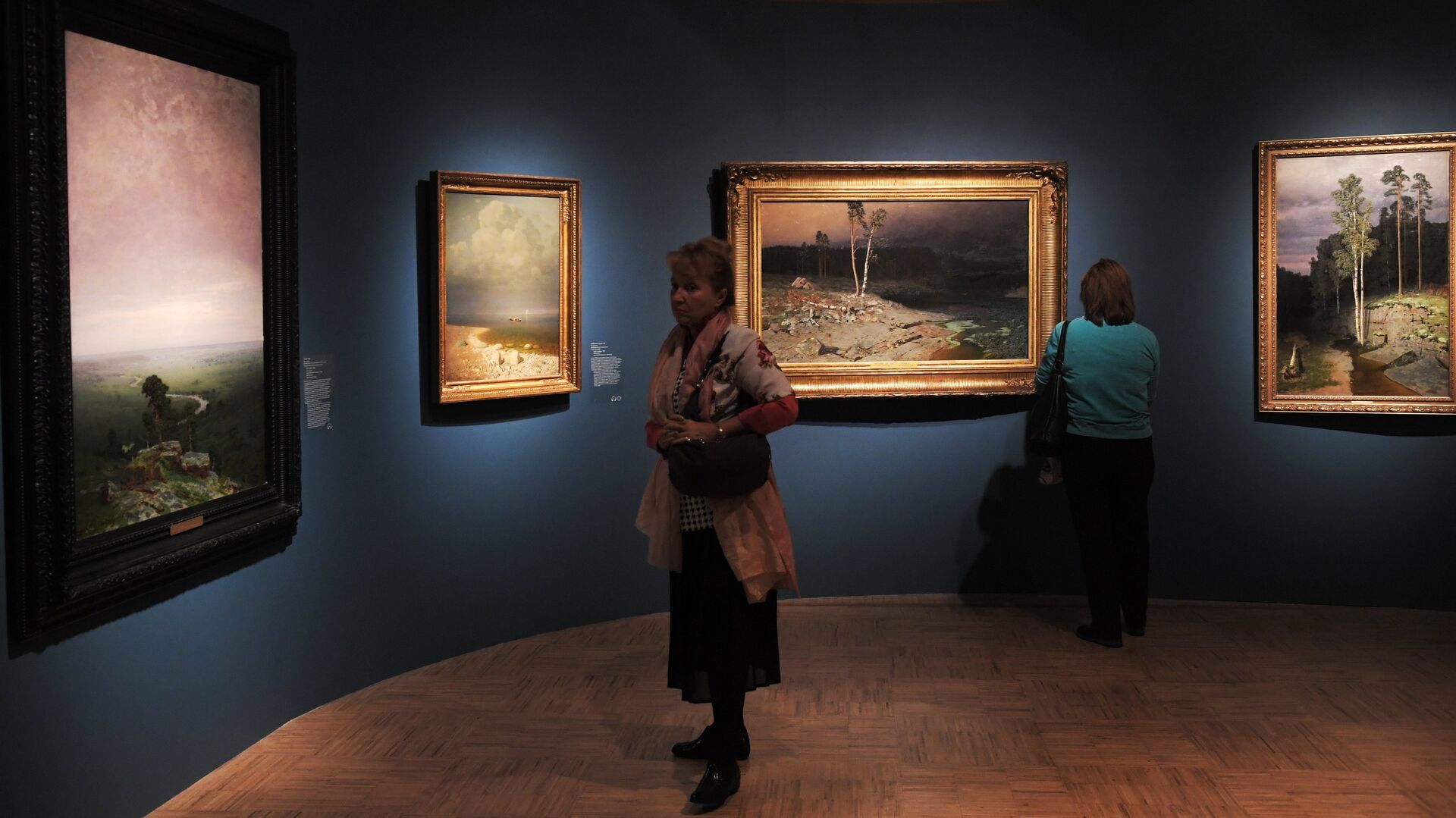https://sputnikglobe.com/20230304/how-kuindzhi-became-ukrainian-new-york-metropolitan-museum-employees-havent-a-clue-1108004664.html
How Kuindzhi Became Ukrainian: New York Metropolitan Museum Employees Haven't a Clue
How Kuindzhi Became Ukrainian: New York Metropolitan Museum Employees Haven't a Clue
Sputnik International
The Metropolitan Museum in New York continues to change the nationality of the classics of painting, on Friday it listed Ivan Aivazovsky as an Armenian artist and before that officially called Arkhip Kuindzhi a Ukrainian.
2023-03-04T09:45+0000
2023-03-04T09:45+0000
2023-03-04T09:51+0000
us
painter
metropolitan museum of art
viral
https://cdn1.img.sputnikglobe.com/img/107186/84/1071868403_17:0:3658:2048_1920x0_80_0_0_c3a61ca9e4e9cbe1aea0eb1ee11b8700.jpg
Nevertheless, although Kuindzhi was referred to as simply "Ukrainian" until only a few weeks ago, the museum later added the words "born in the Russian Empire" on its website.Now the plate next to the painting "Red Sunset" says: "Arkhip Ivanovich Kuindzhi, Ukrainian, was born in Mariupol in 1841, died in St. Petersburg in 1910." Sputnik has for weeks been asking the Metropolitan museum's press office for an explanation as to why it suddenly began to consider the Russian/Greek Kuindzhi - who was born and died in the Russian Empire - a Ukrainian. However, it has not yet received an answer.However, an employee at the museum's information desk tried to explain the reason with the following: "I think the reason is that yes, he's of Greek descent, he was from Mariupol, which is Ukraine, so that's why they probably changed it." But since 2014, Mariupol has been part of the Donetsk People's Republic and on 21 February 2022 the DPR became a region of Russia.Earlier, the museum decided that Ivan Aivazovsky, Ilya Repin and Arkhip Kuindzhi were Ukrainian artists. On Friday, however, Aivazovsky was repatriated as Armenian and in the space next to his paintings the inscription says: "Armenian, born in the Russian Empire (now Ukraine)".In the case of Aivazovsky there's a certain logic in the museum's decision: the artist's father, Ovanes Aivazovsky, was born in the family of Armenian Gevork Aivazyan. However, in the case of the ethnic Greek Kuindzhi, there are still questions to be posed to the Metropolitan Museum.Since the beginning of Russia's military operation in Ukraine in February 2022, Western countries have imposed comprehensive sanctions against Moscow, including in culture. Russia has faced problems retrieving its art works from overseas exhibitions, and many Western countries have canceled shows by Russian performers, removed Russian literature from educational syllabuses and demolished monuments dedicated to prominent Russian individuals.
Sputnik International
feedback@sputniknews.com
+74956456601
MIA „Rosiya Segodnya“
2023
Sputnik International
feedback@sputniknews.com
+74956456601
MIA „Rosiya Segodnya“
News
en_EN
Sputnik International
feedback@sputniknews.com
+74956456601
MIA „Rosiya Segodnya“
Sputnik International
feedback@sputniknews.com
+74956456601
MIA „Rosiya Segodnya“
metropolitan museum in new york, arkhip kuindzhi
metropolitan museum in new york, arkhip kuindzhi
How Kuindzhi Became Ukrainian: New York Metropolitan Museum Employees Haven't a Clue
09:45 GMT 04.03.2023 (Updated: 09:51 GMT 04.03.2023) The Metropolitan Museum in New York continues to change the nationality of classical painters: on Friday it declared that Ivan Aivazovsky was an Armenian artist and before that officially announced that Arkhip Kuindzhi was a Ukrainian.
Nevertheless, although
Kuindzhi was referred to as simply "Ukrainian" until only a few weeks ago, the museum later added the words "born in the Russian Empire" on its website.
Now the plate next to the painting "Red Sunset" says: "Arkhip Ivanovich Kuindzhi, Ukrainian, was born in Mariupol in 1841, died in St. Petersburg in 1910."
Sputnik has for weeks been asking the Metropolitan museum's press office for an explanation as to why it suddenly began to consider the Russian/Greek Kuindzhi - who was born and died in the Russian Empire - a Ukrainian.
However, it has not yet received an answer.
However, an employee at the museum's information desk tried to explain the reason with the following: "I think the reason is that yes, he's of Greek descent, he was from Mariupol, which is Ukraine, so that's why they probably changed it." But since 2014, Mariupol has been part of the Donetsk People's Republic and on 21 February 2022 the DPR became a region of Russia.
Earlier, the museum decided that Ivan Aivazovsky, Ilya Repin and Arkhip Kuindzhi were Ukrainian artists. On Friday, however, Aivazovsky was repatriated as Armenian and in the space next to his paintings the inscription says: "Armenian, born in the Russian Empire (now Ukraine)".
In the case of Aivazovsky there's a certain logic in the museum's decision: the artist's father, Ovanes Aivazovsky, was born in the family of Armenian Gevork Aivazyan. However, in the case of the ethnic Greek Kuindzhi, there are still questions to be posed to the Metropolitan Museum.
Since the beginning of Russia's military operation in Ukraine in February 2022, Western countries have imposed comprehensive sanctions against Moscow, including in culture. Russia has faced problems retrieving its art works from overseas exhibitions, and many Western countries have canceled shows by Russian performers, removed Russian literature from educational syllabuses and demolished monuments dedicated to prominent Russian individuals.



